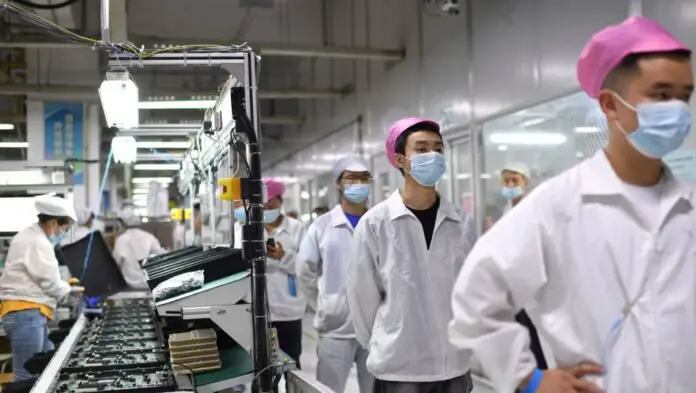Staff Reporter
President Trump has implemented a 90-day pause on “reciprocal” tariffs for countries that haven’t retaliated. This has given Tim Cook’s Apple the opportunity to significantly increase production of smartphones, tablets, and laptops in India and Vietnam.
Sources familiar with Apple’s supply chains have informed Nikkei Asia that major suppliers in India have been directed to ramp up iPhone production. However, factory utilization rates are already at peak levels, posing challenges for expanding production capacity.
Apple has assisted suppliers in acquiring equipment that could potentially boost iPhone production in India by several million units, according to insiders.
The company aims to manufacture at least 50 million iPhones in India this year, with plans for the majority of its next iPhone model destined for the U.S. market.
Additionally, suppliers have been instructed to produce most MacBooks and iPads for the U.S. in Vietnam, as reported by sources close to the situation.
To further support this increase in production, Apple has requested that suppliers expedite shipments of components and parts from China to Southeast Asia and India.
Last week, Apple moved quickly to send five emergency air freight shipments of iPhones and other products from India and China to the U.S. in an effort to navigate the ongoing tariff conflict.
Trade data from the supply chain platform Sayari indicates that Foxconn India is a key supplier for Apple’s iPhone production. According to a report from Nikkei, Apple has also instructed its suppliers to “accelerate the shift of component production, such as printed circuit boards, to Thailand and other non-China locations.”
An executive from an Apple component supplier stated, “We are being asked to ship all of our components to Southeast Asia and India by air whenever possible. It feels like the client is scooping up all the inventories to move them outside of China.” However, he noted that his company would have to bear the extra costs of air shipping.
Another manager at a significant Apple supplier told Nikkei Asia, “Apple is very serious about auditing multiple sites in Thailand for component production. The push to diversify out of China is well underway.”
In a similar vein, companies like Meta, HP, and Dell have also directed their suppliers to ramp up production in Vietnam and other Southeast Asian nations to sidestep tariffs imposed on goods from China.
The impact of Trump’s trade war is increasingly evident, as U.S. companies shift their supply chains away from China toward friendshoring and re-shoring strategies.


